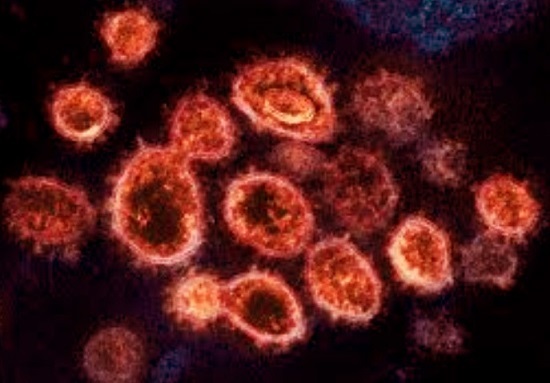Nikhil Prasad Fact checked by:Thailand Medical News Team Aug 18, 2025 6 months, 2 weeks, 1 day, 2 hours, 18 minutes ago
Medical News: A closer look at immune system imbalance
Scientists from the United Arab Emirates University, Umea University in Sweden, ICMR-National Institute for Research in Reproductive and Child Health India, University of Kent and Greenwich, Brunel University London, University of Oxford, and other collaborating institutions have discovered how two important immune proteins, Factor H (FH) and Properdin (FP), affect the way SARS-CoV-2 infects cells. This
Medical News report highlights how these proteins can either block or worsen infection, shedding new light on why some people develop severe COVID-19 while others do not.
 Complement Proteins May Shape COVID-19 Severity
How the proteins interact with the virus
Complement Proteins May Shape COVID-19 Severity
How the proteins interact with the virus
The team found that both FH and FP can directly attach to the spike protein of SARS-CoV-2. However, they act in completely opposite ways. FH helps protect cells by blocking the virus from entering and calming the inflammatory response, while FP does the opposite, making it easier for the virus to invade and triggering more inflammation. In fact, experiments showed that FH treatment reduced viral entry by around 25 percent, while FP increased entry by up to 80 percent.
Inflammation and cytokine storms
The research also looked at inflammation, a key driver of severe COVID-19. Cells treated with FH showed much lower activity of inflammatory signals such as NF-kB, IL-6, TNF-alpha, and IL-1b. On the other hand, FP treatment raised these signals sharply, mimicking the dangerous “cytokine storm” seen in patients with life-threatening COVID-19. The findings suggest that low FH levels and high FP levels, as previously observed in severe cases, could explain why some patients deteriorate so quickly.
Possible therapeutic targets
Another important discovery was that blocking FP with antibodies could stop it from boosting viral entry. This raises hope that new therapies targeting FP might reduce severe disease. Meanwhile, enhancing FH activity may offer a protective effect by both blocking viral entry and reducing lung inflammation. The study points out that these effects happen independently of the usual complement system activation, showing a more direct role of these proteins in COVID-19 infection.
What this means for the future
These results indicate that balancing FH and FP levels could be critical in controlling COVID-19 severity. Therapies designed to boost FH or block FP could help reduce the chances of patients progressing to severe disease. The research also helps explain why the immune system can sometimes worsen COVID-19 rather than protect against it. With millions still at risk from new variants, this knowledge could help shape the next generation of treatments.
The study findings were published in the peer reviewed journal: Frontiers in Immunology.
https://www.frontiersin.org/journals/immunology/articles/10.3389/fimmu.2025.1620229/full
gt;
For the latest COVID-19 news, keep on logging to Thailand
Medical News.
Read Also:
https://www.thailandmedical.news/news/sars-cov-2-suppresses-membrane-complement-regulatory-proteins-making-blood-vessels-more-vulnerable-to-damage-
https://www.thailandmedical.news/news/sars-cov-2-disrupts-the-hemostatic-system-and-the-complement-system-in-a-complex-interplay
https://www.thailandmedical.news/news/the-covid-19-virus-exploits-host-cd55-cd59-and-factor-h-to-evade-antibody-dependent-complement-mediated-lysis
